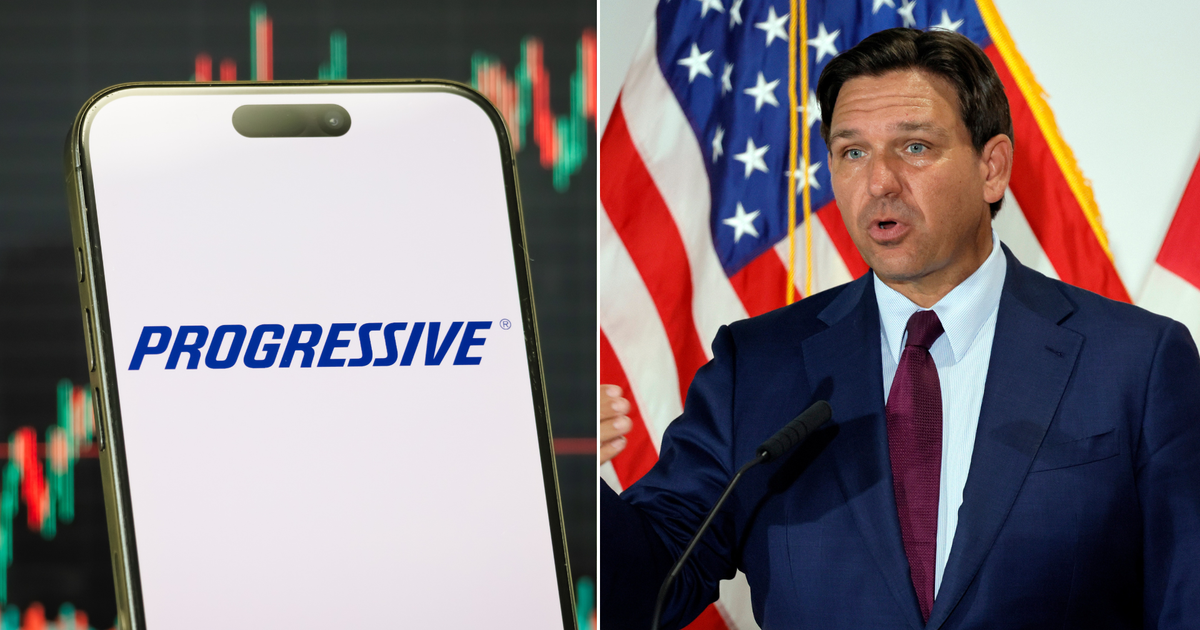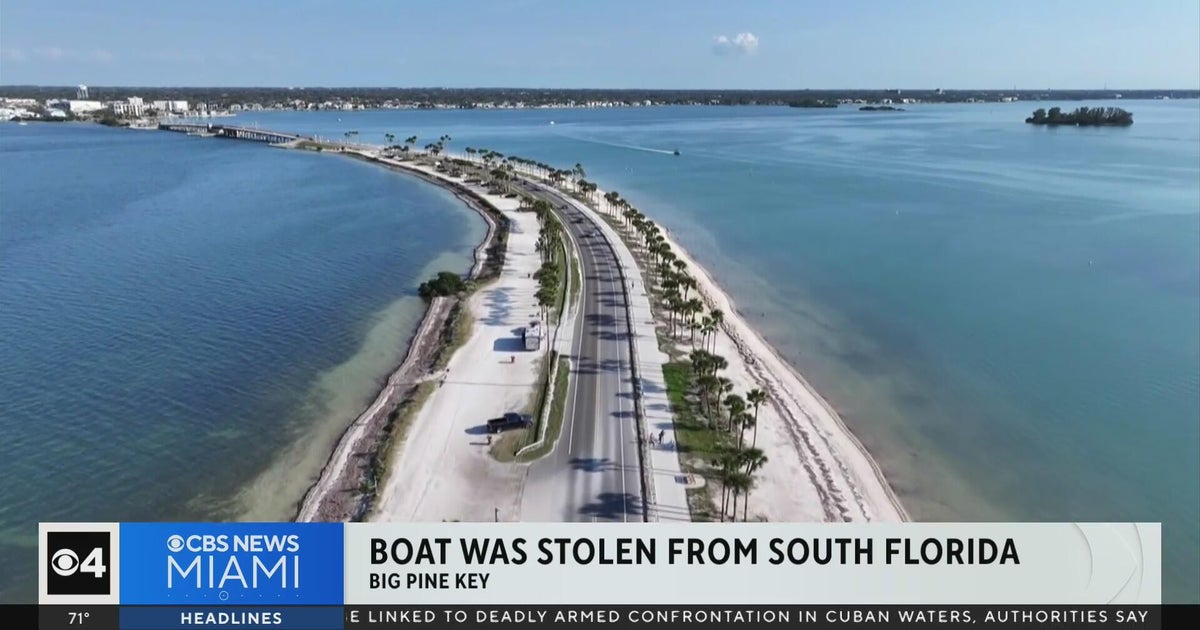Florida insurance policyholders could be seeing some form of relief in their wallets thanks to market reforms made statewide, Gov. Ron DeSantis said.
While in Sarasota on Wednesday, DeSantis, joined by Insurance Commissioner Michael Yaworsky, announced the continued progress in the state’s insurance market as major reforms are starting to drive down rates, attract new insurers, reduce litigation and deliver “significant savings for Florida consumers,” according to a press release from the governor’s office.
DeSantis said thanks to the improvements, Progressive will refund nearly $1 billion to Florida auto insurance policyholders, “reflecting reduced losses and strong savings tied directly to the state’s tort and insurance reform efforts.”
“Florida’s insurance market is stabilizing with decreasing auto and home insurance rates, and frivolous litigation is declining,” the governor said.
DeSantis continued, saying that in this year alone, Florida’s top five auto insurers are averaging over a 6% rate reduction, which allowed the state to secure nearly $1 billion in credit for Progressive auto policyholders, with other carriers expected to follow suit. Additionally, the governor said 17 new companies have entered Florida’s homeowners’ insurance market, while 33 companies have filed for rate decreases and reinsurance markets have declined.
“Florida’s insurance market continues to see great stability and the strong underwriting gains in the auto market is just the latest sign of success since Florida’s historic tort reforms,” Yaworsky added.
Yaworsky said that the Florida Office of Insurance Regulation (OIR) has been “diligent in communication” with auto insurers to ensure credits owed to policyholders are paid and that “millions of consumers will start feeling benefits with many companies in the process of issuing refunds.”
“Companies must act in the best financial interest of Florida consumers: Please know that OIR is fully aware of the books, and we are watching,” he said. “So do the right thing, come to us first before we make you comply with the law.”
Chief Financial Officer Blaise Ingoglia said that the state’s “historic” reforms have laid the groundwork necessary for Florida’s insurance market to strengthen, with auto insurance rates dropping significantly, so that policyholders are now starting to see refunds.
“It’s a good day when the insurance companies are the ones sending the checks to the policyholders instead of receiving checks from policyholders,” he said. “I have said since day one that I will fight for the policyholders, not insurance companies or trial attorneys.”
According to the governor’s office, Florida’s property insurance market has experienced record growth and stability since the passage of the reforms. The governor’s office continued, saying that 17 new insurers have entered the marketplace, bringing more than $574 million in policyholder surplus to support Florida’s expanding property sector.
Florida is one of the largest property markets in the country, with more than 7.61 million residential insurance policies in force across the state, according to the governor’s office. In Florida, domestic property insurers reported $954 million in net income at the end of 2024, which is up from $292 million in 2023 and reversing a $741 million loss in 2022.
Homeowners’ policyholders are also seeing relief
According to the governor’s office, the OIR has received more than 150 residential filings for rate decreases or 0% increases since the insurance reforms were enacted. Since January 2024, 33 companies have filed for rate decreases, while 46 companies have requested no change or 0% increases.
Florida Peninsula Insurance, one of the state’s largest insurers, requested its “biggest rate decrease in company history,” averaging at -8.4% statewide and -12% for condominium owners, the governor’s office said.
The 30-day average for homeowner rate filings is now -1.3% compared to -0.1% one year ago and the 180-day average showed a -0.1% change compared to a +7.6% increase in the same period, the governor’s office added.
“According to S&P Global, the Insurance Information Institute, and Lending Tree, Florida had the lowest average homeowners rate increase in the nation in 2024 – just one percent – while 33 other states experienced double-digit increases,” the governor’s office continued. “Reinsurance costs have also continued to decline, with risk-adjusted costs dropping 1.56% in 2024 and another 0.36% in 2025, reflecting continued confidence in Florida’s market.”
Florida is seeing success with auto insurance, OIR says
Earlier this year, Yaworsky announced a decline in auto insurance rates across the state.
For 2025, Florida’s top five auto writer insurance groups indicated an average -6.5% rate change, which is down from an average +4.3% in 2024 and +31.7% in 2023. According to the governor’s office, the top five auto writer insurance groups amount to 78% Florida’s market.
In September, Progressive recorded a $950 million policyholder credit expense, which represented a current estimate of profit earned on the three-year calendar year period ending on Dec. 31, 2025. Progressive is expected to provide credit to active policyholders on that date, estimated to be around 2.7 million personal auto policyholders in Florida.
According to the governor’s office, Progressive credited the state reforms for its own success.
“Since Florida insurance reform was enacted in early 2023, we have seen lower loss costs on certain types of personal auto accident claims and favorable reserve development, and we have experienced strong profitability in our Florida personal auto business,” the insurer said in a September SEC filing.
The governor’s office also said that excess profits for motor vehicle insurance are prohibited. According to Section 627.066 of the Florida Statutes, auto insurers are statutorily obligated to return excess profits to policyholders when applicable.
“Thanks in large part to historic legislative reforms over the last several years that have strengthened the state’s insurance market, OIR is aware that several auto insurance companies may be approaching the statutory threshold,” the governor’s office said.
Ligitation decline and other insurance market improvements
According to the governor’s office, Florida’s legal climate has also improved.
Thanks to DeSantis’ tort reforms, frivolous property claim litigation has declined to 25% in the first half of 2025, compared to the same period in 2024. Overall, litigation filings fell 23% year-over-year from 2023 to 2024 and remain below pre-2018 levels, the governor’s office said.
“Every month of 2025 has reported a continued decline in litigation compared to the same month the previous year, further proof that the state’s legal environment has stabilized and is discouraging abusive lawsuits,” the governor’s office said.
The reforms’ success has been evident thanks to the depopulation of Citizens Property Insurance Corporation, the governor’s office said. Citizens, which serves as Florida’s “insurer of last resort,” saw a total exposure reduction of more than $304.5 billion. According to the governor’s office, 477,821 policies were assumed by private insurers, with an additional 216,799 policies having transitioned so far in 2025.
“This demonstrates a clear shift of risk back into the private market, signaling renewed industry confidence and stronger consumer protection,” the governor’s office said.
DeSantis also announced continued investments in the My Safe Florida Home program for 2026, which would ensure more families can harden their homes to withstand weather events and lower their premiums. According to the governor’s office, the program provides free wind mitigation inspections and matching grants for homeowners to harden their properties against storm damage.
Since the program was reinstated in 2022, more than 122,000 inspections were completed, with 63,000 home hardening applications approved and 42,000 projects completed, the governor’s office said. Additionally, more than 62,000 homeowners have received grants totalling $383 million, resulting in an average $900 premium reduction last year, the governor’s office said.



